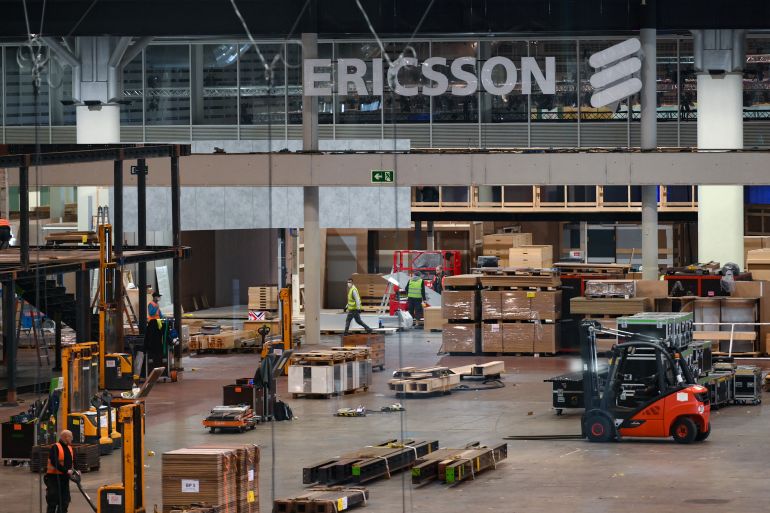Ericsson says employees may have bribed ISIL in Iraq
Swedish telecoms group says 2019 investigation found serious breaches of compliance rules in Iraq, leading to several employees’ exit.

Swedish telecoms giant Ericsson suspects some of its employees in Iraq may have bribed members of the ISIL (ISIS) armed group to gain access to certain roads in the country, the company’s chief executive has said.
Ericsson’s share price tumbled by more than seven percent in opening trade on Wednesday on the Stockholm stock exchange after the news.
Keep reading
list of 3 itemsMain Paris attacks suspect Abdeslam says he ‘didn’t kill anyone’
Is a rift between Pakistan and the Afghan Taliban imminent?
“What we see is that people have paid for road transport through areas controlled by terrorist organisations, including ISIS,” Borje Ekholm told Swedish financial daily Dagens Industri.
“With the means we have, we haven’t been able to determine the final recipients of these payments,” he added.
Ekholm’s comments came hours after the company released a statement late on Tuesday admitting “serious breaches of compliance rules and the company’s code of business ethics” regarding Ericsson employees, vendors and suppliers in Iraq between 2011 and 2019.
It said an internal investigation conducted in 2019 had revealed “evidence of corruption-related misconduct”.
It included “making a monetary donation without a clear beneficiary; paying a supplier for work without a defined scope and documentation; using suppliers to make cash payments; funding inappropriate travel and expenses; and improper use of sales agents and consultants”.
In addition, it found violations of Ericsson’s internal financial controls, conflicts of interest, non-compliance with tax laws and obstruction of the investigation.
Ericsson said payment schemes and cash transactions that “potentially created the risk of money laundering were also identified” but “the investigation could not identify that any Ericsson employee was directly involved in financing terrorist organisations”.
Several employees left the company as a result of the probe, “and multiple other disciplinary and other remedial actions were taken”, Ericsson said in the statement.
The company said it had chosen to disclose details of the now two-year-old investigation due to “detailed media inquiries from Swedish and international news outlets”.
Swedish public broadcaster SVT said its investigative news show Uppdrag granskning had put questions to Ericsson, in collaboration with the International Consortium of Investigative Journalists (ICIJ).
Further measures
Ekholm told Dagens Industri that Ericsson had shared the conclusions of its investigation with authorities in the United States.
In 2019, Ericsson had agreed with the US Department of Justice (DoJ) to pay more than $1bn to resolve a separate series of probes into corruption, including the bribing of government officials that took place over many years in countries including China, Vietnam and Djibouti.
In October last year, it received correspondence from the DoJ stating that the company breached its obligations under a Deferred Prosecution Agreement (DPA) by failing to provide certain documents and factual information.
When asked by Reuters news agency if Ericsson had disclosed its 2019 internal investigation to the DoJ, Ekholm said: “We are under the DPA with the US authorities which limits our ability to comment on what is disclosed or not disclosed.
“If new facts come to light or new information, we will for sure reopen the investigation and run it full speed ahead to investigate those matters,” Ekholm said.
Ericsson said it was working with external counsel to review the findings resulting from the investigation to identify any additional measures that it should take.
“We invested significant resources to complete the investigation, but as a company we have limited powers to investigate,” Ekholm said. “We tried to do the best we could, took guidance from external legal counsel and other external support.”